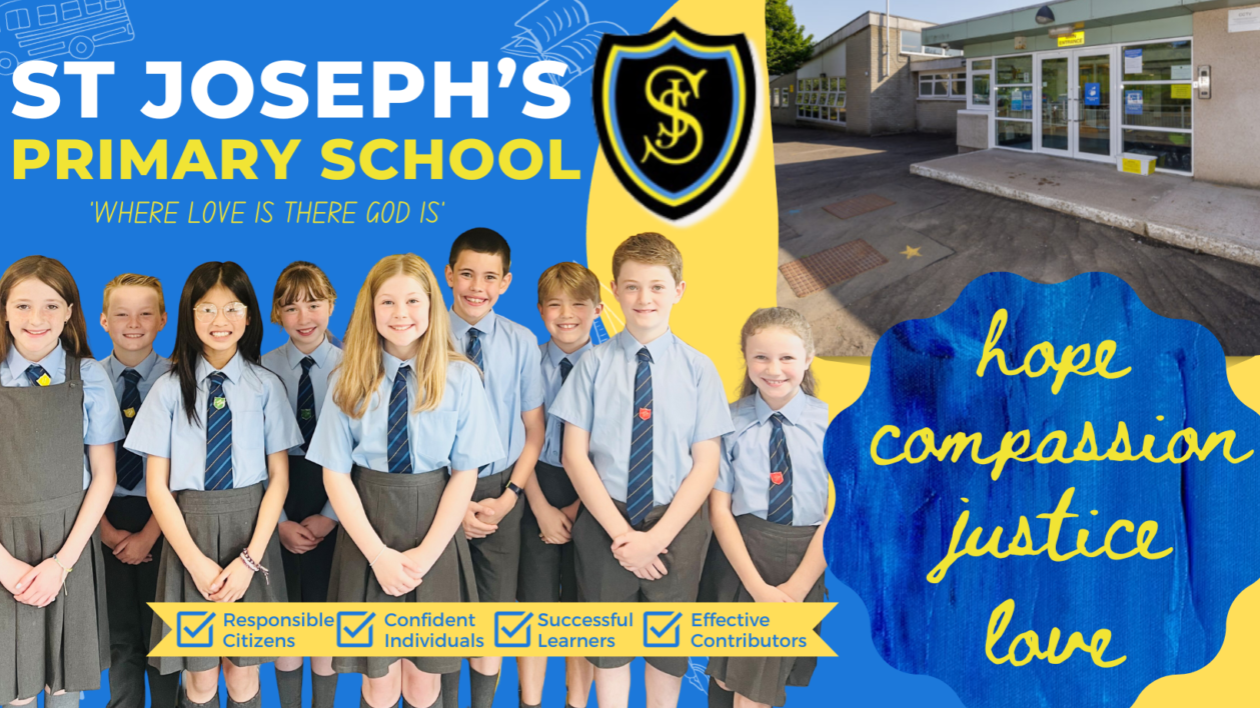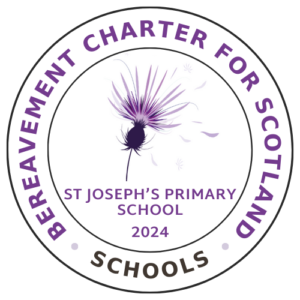Bereavement Charter Mark
At St. Joseph’s Primary, we are incredibly proud to have received a Charter Mark for our exemplary approach to supporting grief, loss, and bereavement within our school community.
This recognition highlights the dedication and care with which we integrate these topics into our school culture, ensuring that every child, staff member, and family feels supported during times of loss.
The Charter Mark reflects our commitment to nurturing the emotional wellbeing of our pupils during life’s most challenging moments and helping them to navigate their grief in a safe and understanding environment.
Please see below for further information on the Bereavement, Loss and Grief Lessons, Support and Guides.
The themes of loss, change, grief and bereavement are challenging ones to discuss with children and young people and yet everyone will experience loss at some point in their life. We often don’t broach the subject until we have suffered a bereavement and then it can be very difficult to know how to discuss it with children and young people and how to help them cope with grief.
We cannot fully prepare anyone for a bereavement and the strong feelings associated with grief, however, encouraging children and young people to talk openly about these themes and explore a variety of ways of managing these often difficult emotions can be helpful when they do face a loss, change or death. The East Renfrewshire Bereavement, Loss and Grief Team has created a series of age and stage appropriate lessons designed to help pupils explore these themes.
Each stage will work through a set of 3 lessons:
Lesson 1: Learn
This first lesson aims to introduce some of the feelings which a loss, change or death can bring. Stories and film clips are used to generate discussion about how people can manage these feelings.
Lesson2: Explore
The second lesson explores these themes in more detail. Through group discussions and interactive activities the pupils will consider what death means, what grief is, what people need when they are bereaved and how we can help others.
Lesson 3: Grow
The final lesson is focused on building resilience and promoting wellbeing through trying different creative and interactive strategies. This could be related to the themes of loss and grief such as making memory boxes or related to resilience more widely such as practicing gratitude or breathing techniques.
Do I need to prepare my child for these lessons?
No, you do not need to prepare your child for these lessons. However, it can be helpful to talk to your child about loss, change and death. We often avoid talking about loss to children as we don’t want to upset them or we may feel they are too young, however, it is something that everyone experiences and being able to talk openly about feelings and coping strategies can really help.
What should I say to my child?
Your child may want to talk to you after the lessons. This is good. Ask your child questions about what they have been learning and how they feel about it. Follow your child’s lead and reassure them that any feelings they have are very normal. They may ask tricky questions such as what happens to someone after death. Your family may have strong beliefs about this and it’s good to share these, however, it is also ok to tell your child that you don’t know or to encourage them to form their own beliefs.
“There are lots of different beliefs about what happens after you die. What do you think happens?” What if I am worried about my child being part of the lessons?
Your child may have recently suffered a loss or a bereavement or you may have other concerns about your child taking part in these lessons. Please discuss your concerns with your child’s teacher.
How can I support my child after a bereavement?
We have collated a range of information and resources to help you and your family which you will find on the Healthier Mind website.
We also invite you to visit Winston’s Wish and Child Bereavement UK for more information.
- Bereavement, Loss and Grief Curricular Resource Links to CfE
- Bereavement, Loss and Grief Curricular Resource Sketchnote
- Bereavement-Loss-and-Grief-Leaflet-for-Children-and-Young-People
- Bereavement-Loss-and-Grief-Leaflet-Parents
- Bereavement-Loss-and-Grief-Poster
- Where-to-Get-Help
- Info-Sheet-Explaining-Funerals-and-Memorials
- Info-Sheet-Supporting-My-Child-after-a-Death
- Info-Sheet-When-a-Grandparent-Dies
- Coping-with-Death-Social-Story



